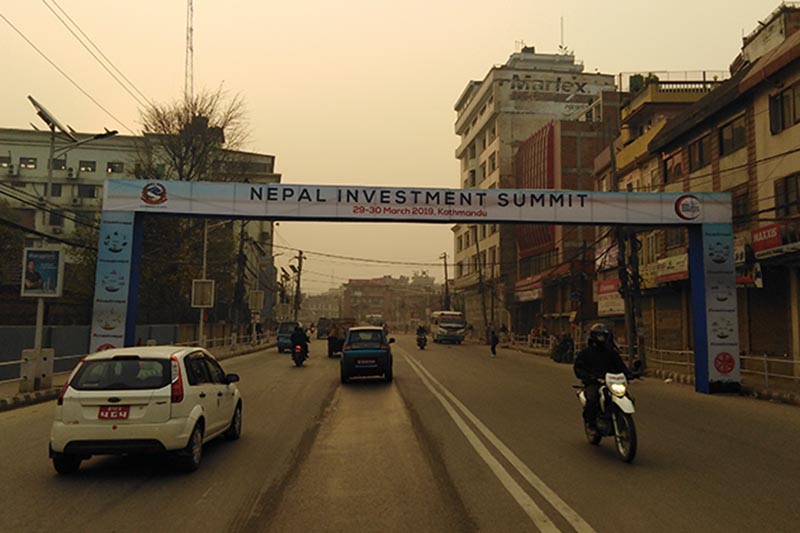Summit begins today with high hopes
Kathmandu, March 28
The two-day Nepal Investment Summit 2019, which is being organised with the objective of promoting Nepal as a promising investment destination, is set to kick off tomorrow, creating a buzz across the country, especially among the business community.
Along with the end of the political transition that not only impeded business growth, but also made the economy sluggish, Nepal today has embarked on a new journey of rapid economic development and it is necessary for the country to enhance its standing as a promising and comparatively better investment destination among investors across the world.
Thus, stakeholders — government and private sector — believe that the investment summit is timely and is a crucial platform to persuade the world to do business in Nepal.
Though the country has introduced and amended certain policies, which have made the country a more favourable investment destination than in the past, a few aspects, including policy implementation and administrative facilitation, still lack competitiveness.
“It is commendable that the government has introduced a number of business-friendly policies, but the private sector will like to see proper implementation of all the policies and their provisions to foster business growth,” said Shekhar Golchha, senior vice-president of the Federation of Nepalese Chambers of Commerce and Industry. “What
really matters is that the government needs to demonstrate the willingness to support business and investment, which the present government has displayed.”
In fact, the government has introduced a number of business-related laws targeting this summit, especially the Foreign Investment and Technology Transfer Act, Public Private Partnership and Investment Act and Special Economic Zone Act (First Amendment). Though the government has been criticised for introducing these policies in a hurry without enough homework and discussion with stakeholders, all these legislations are crucial for investment growth. Policies are dynamic documents and can be rectified.
Along with endorsement of key policies related to business, improved labour relations in the industrial sector are also vital to lure foreign investors. Along with the enforcement of new basic monthly wages for workers and a labour friendly law, both industrial workers and industries have said that labour relations have improved considerably along with the productivity of industries.
Frequent power cuts, which remained one of the major setbacks for industrial growth have also been addressed.
Despite all this, the production cost in Nepal is one of the highest in the region and the government should focus on that, according to Hari Bhakta Sharma, president of the Confederation of Nepalese Industries. “Availability of policies is crucial for investment. However, equally important is to bring down the cost of doing business in a bid to make our production competitive,” he said.
Meanwhile, experts say that Nepal should focus on building a comparatively advantageous market over the peer markets in the region in a bid to attract foreign investment. “At the end, what investors look for is comparative advantage of investing in Nepal,” said Bishwo Poudel, an economist.
At a glance
- Third summit of its type after the first in 1992 and second in 2017
- Theme: To promote Nepal as a promising destination for investment
- Prime Minister KP Sharma Oli scheduled to inaugurate the event
- Over 600 foreign delegates (265 from China, 120 from India) from 40 countries participating
- 77 viable projects worth $31.93 billion (50 public and 27 private projects) being showcased






